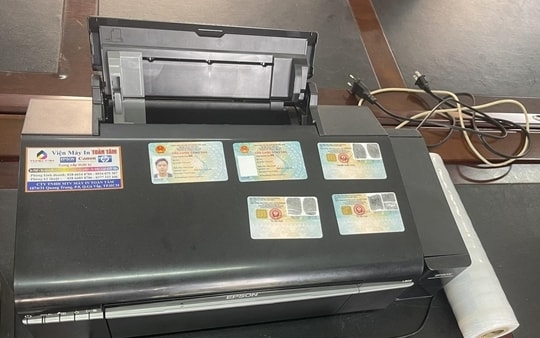Crossing mountains, entering villages to make ID cards for people in the middle of a holiday
(Baonghean.vn)- During these holidays, while everyone is gathering and resting, many officers and soldiers of Nghe An Police are crossing hills and mountains to go to border villages to collect data and make citizen identification cards.
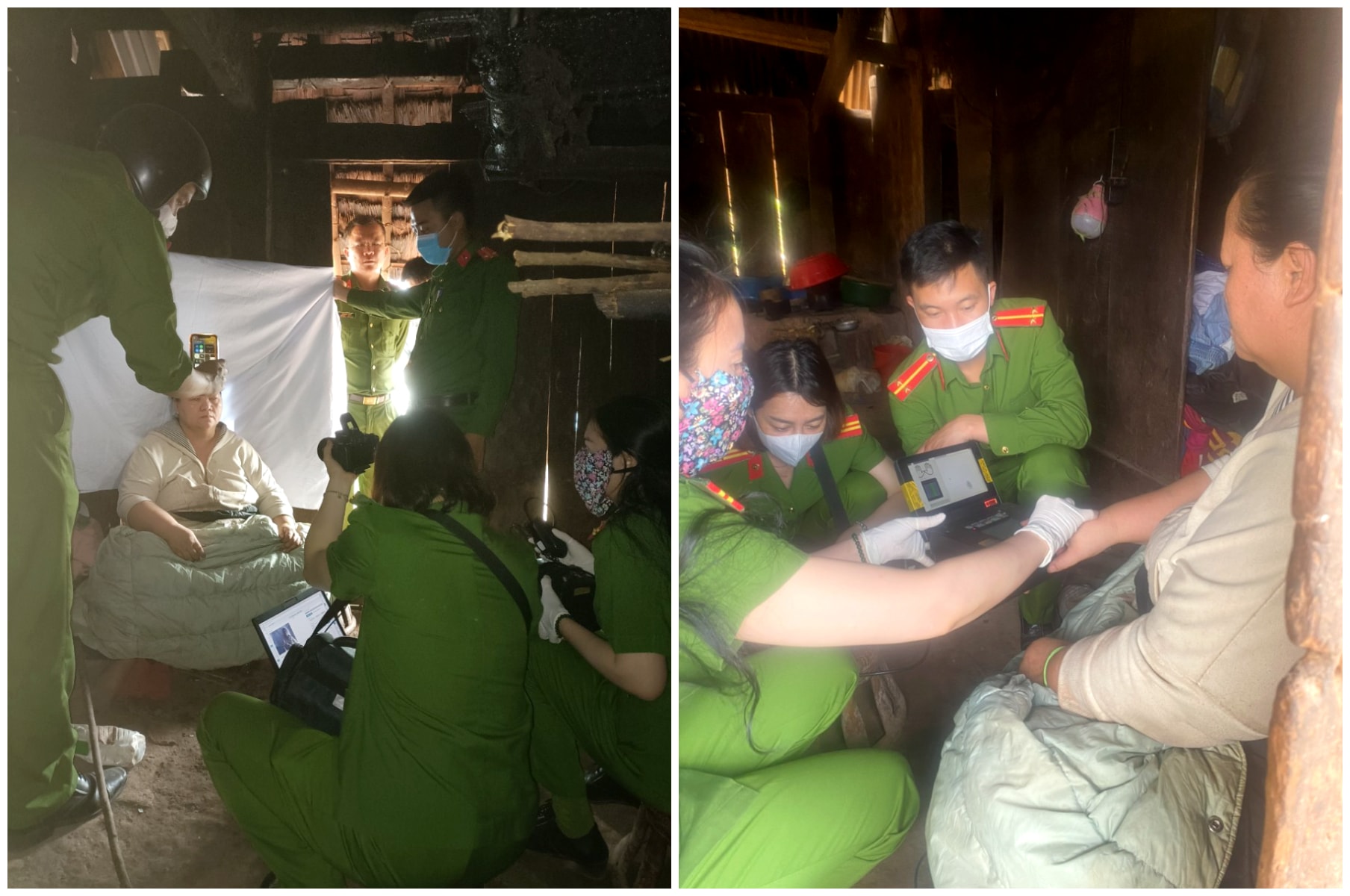 |
| Implementing the peak period of "70 days and nights" to issue chip-embedded citizen identification cards (CCCD) for citizens with permanent residence in Nghe An province currently residing in and outside the province, from April 26, 2023, Nghe An Police established 3 working groups to strengthen the border districts to make mobile CCCDs. Each group consists of 10 comrades, the core of which are officers and soldiers of the Department of Administrative Management of Social Order, who directly go to border communes in 6 districts: Thanh Chuong, Ky Son, Tuong Duong, Con Cuong, Anh Son and Que Phong to collect data. Photo: Hong Ngoc |
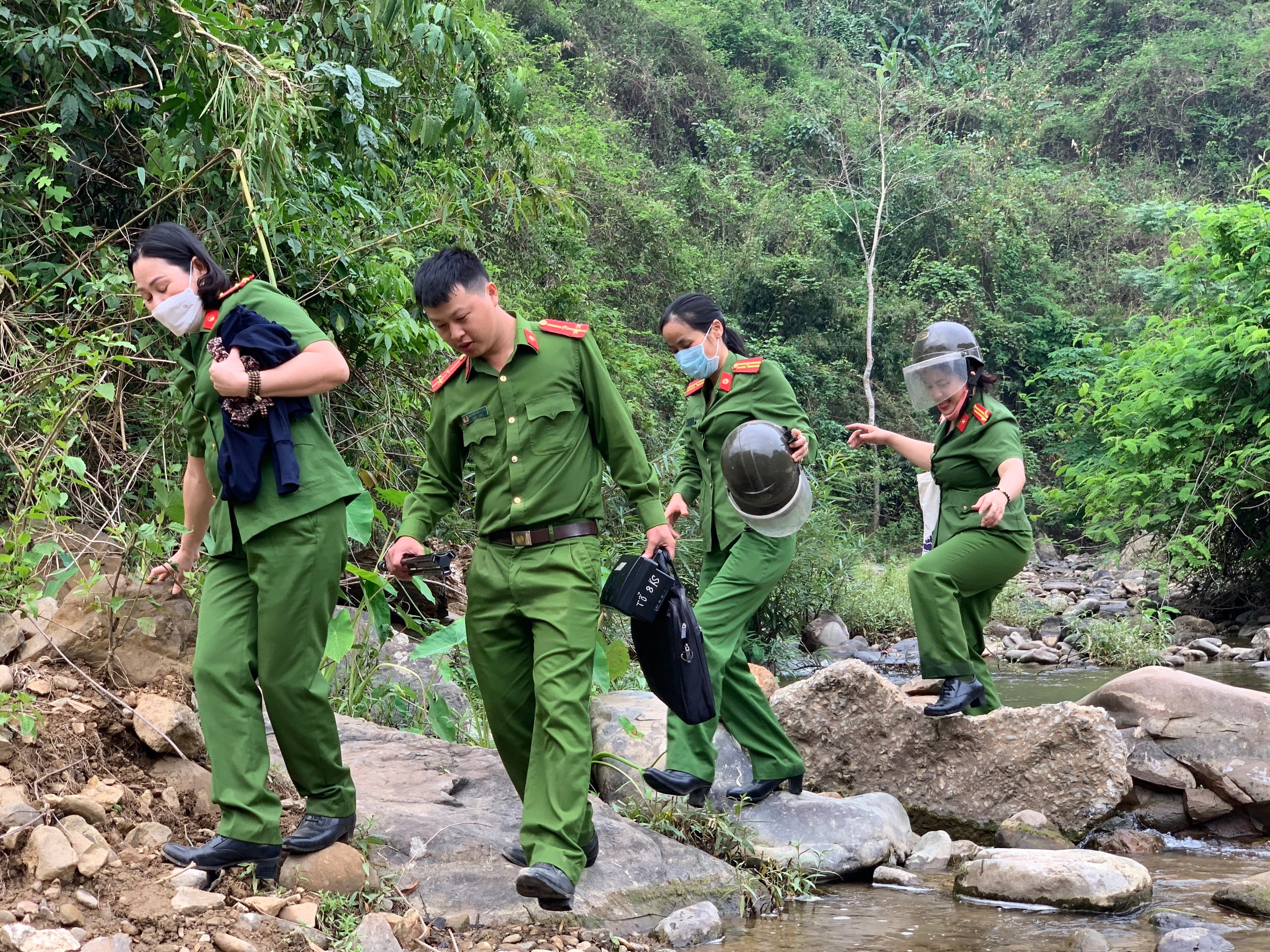 |
| In Ky Son and Thanh Chuong districts, throughout the holidays, 3 working groups of the Provincial Police overcame difficulties and collected CCCD and electronic identification documents in 41 villages in 6 communes: Keng Du, Doc May, Bac Ly, My Ly, Thanh Son and Ngoc Lam. Photo: Hong Ngoc |
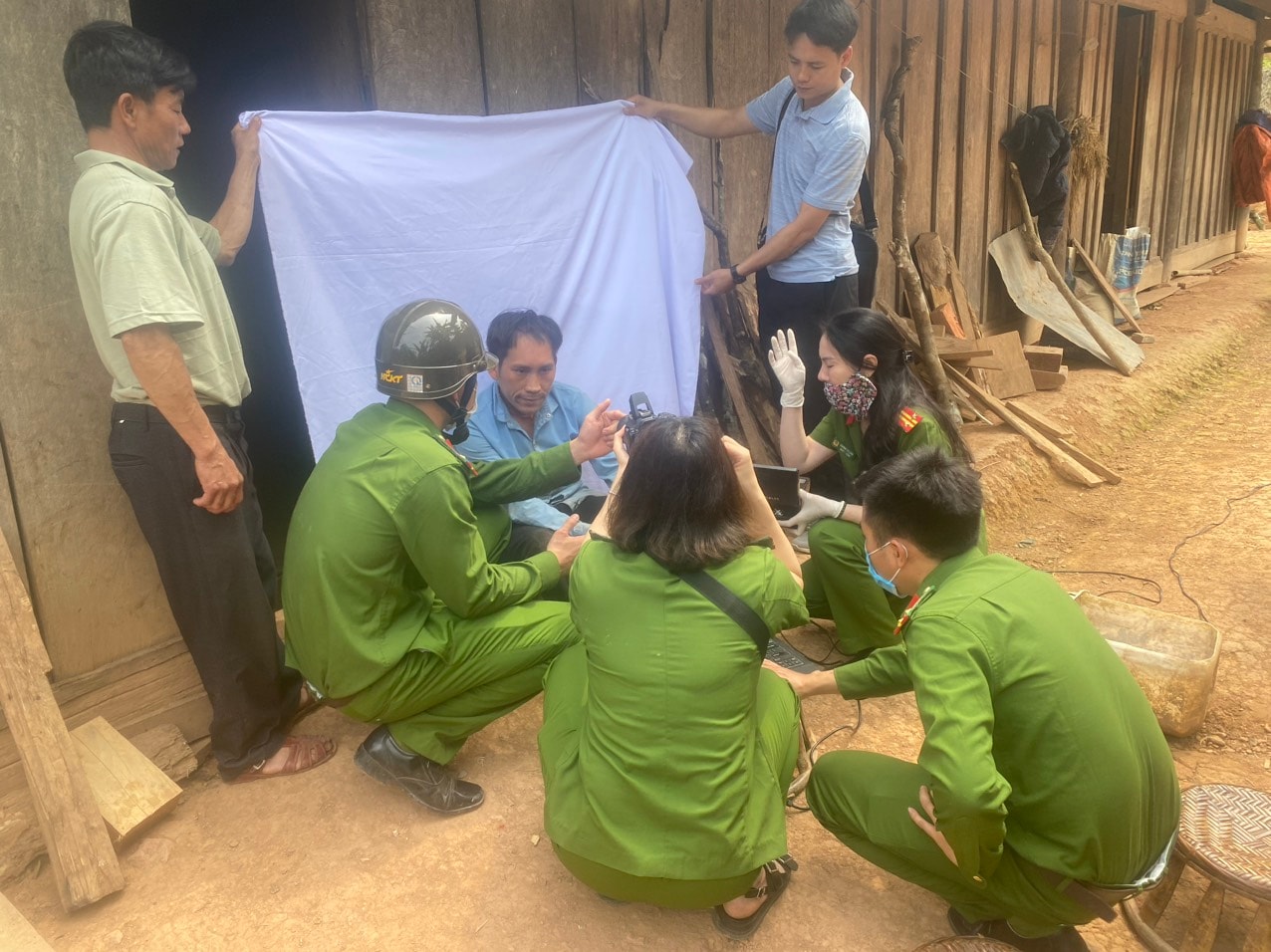 |
| These are particularly difficult areas, to reach the residential areas, the working group must travel by many different means. Most cars can only reach the commune center, while in villages and households with elderly, disabled, and single people, people mainly travel on foot. In many places, officers and soldiers have to climb slopes and cross mountains for nearly half a day to get there. Meanwhile, the machines and means to collect data are specialized and quite cumbersome; everyone must protect the equipment very carefully to avoid problems during deployment. In many villages and residential areas in remote areas without electricity, generators must be used. Therefore, saving fuel is the top priority. All operations of the officers must be performed quickly and accurately, minimizing all energy-consuming activities of the equipment. Photo: Hong Ngoc |
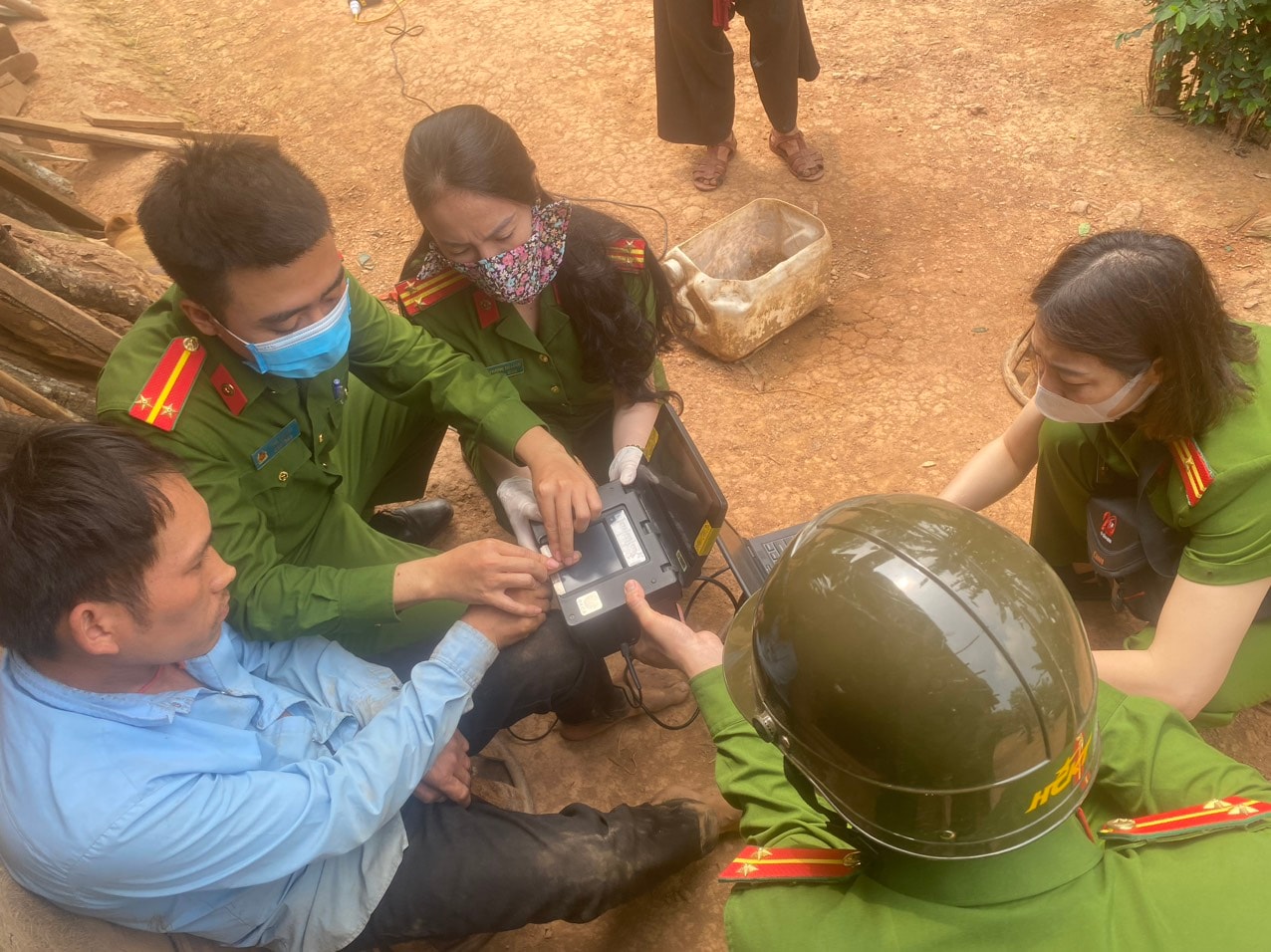 |
| Moreover, most of the residents here are ethnic minorities, working in the fields all year round, so their hands are calloused due to labor; therefore, fingerprinting is very difficult. The "tips" are thoroughly applied by the men and women such as: Soaking hands in carbonated water to soften the skin, using essential oils to make the fingerprints more prominent..., many women even have to use skin creams they bring with them to support. Photo: Hong Ngoc |
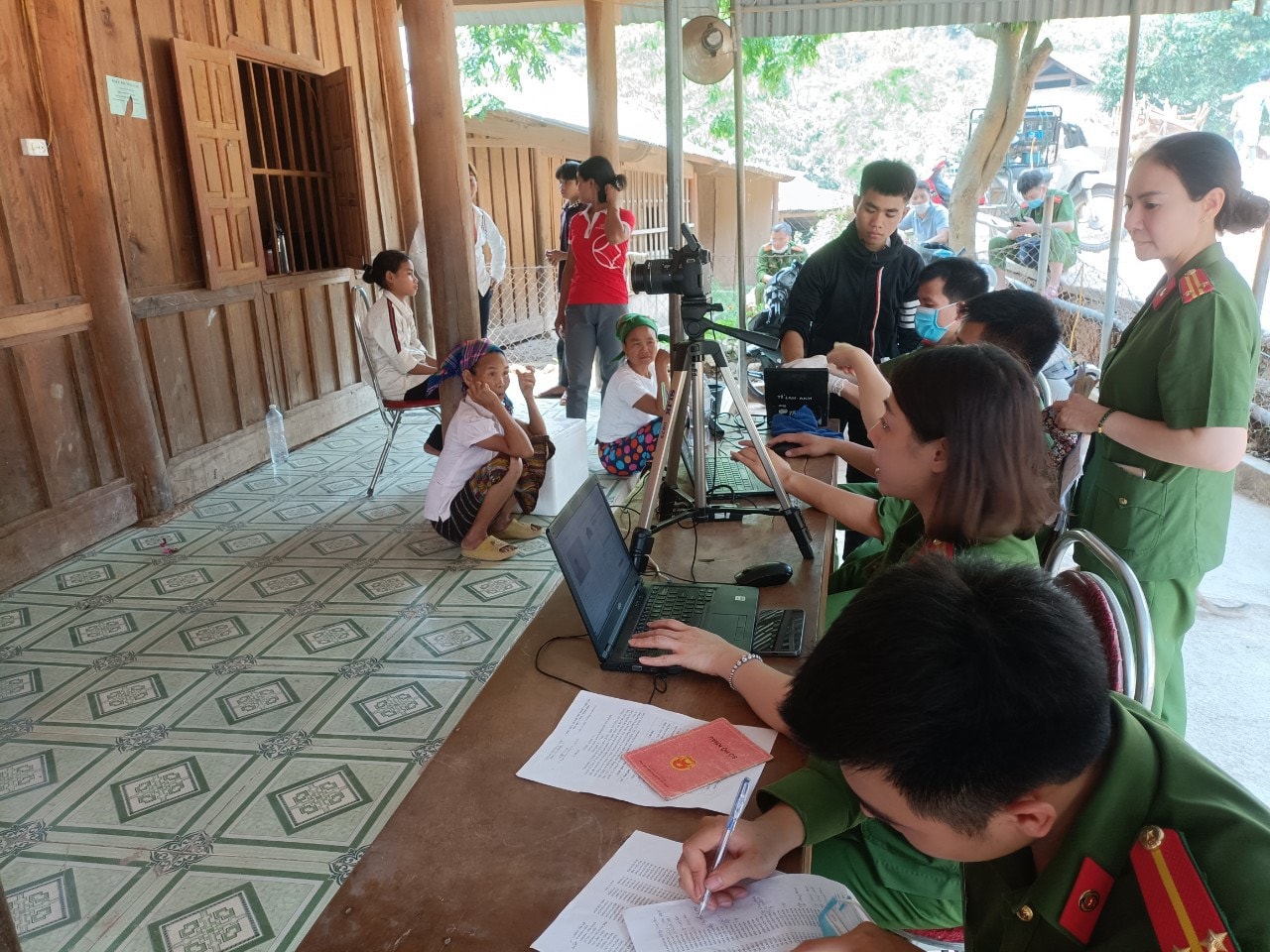 |
| Many of them were having their photo taken for the first time, so they were very confused in front of the camera. The police officers had to give them detailed and dedicated instructions to help them stay calm and focused, so that the image would meet the requirements. Photo: Hong Ngoc |
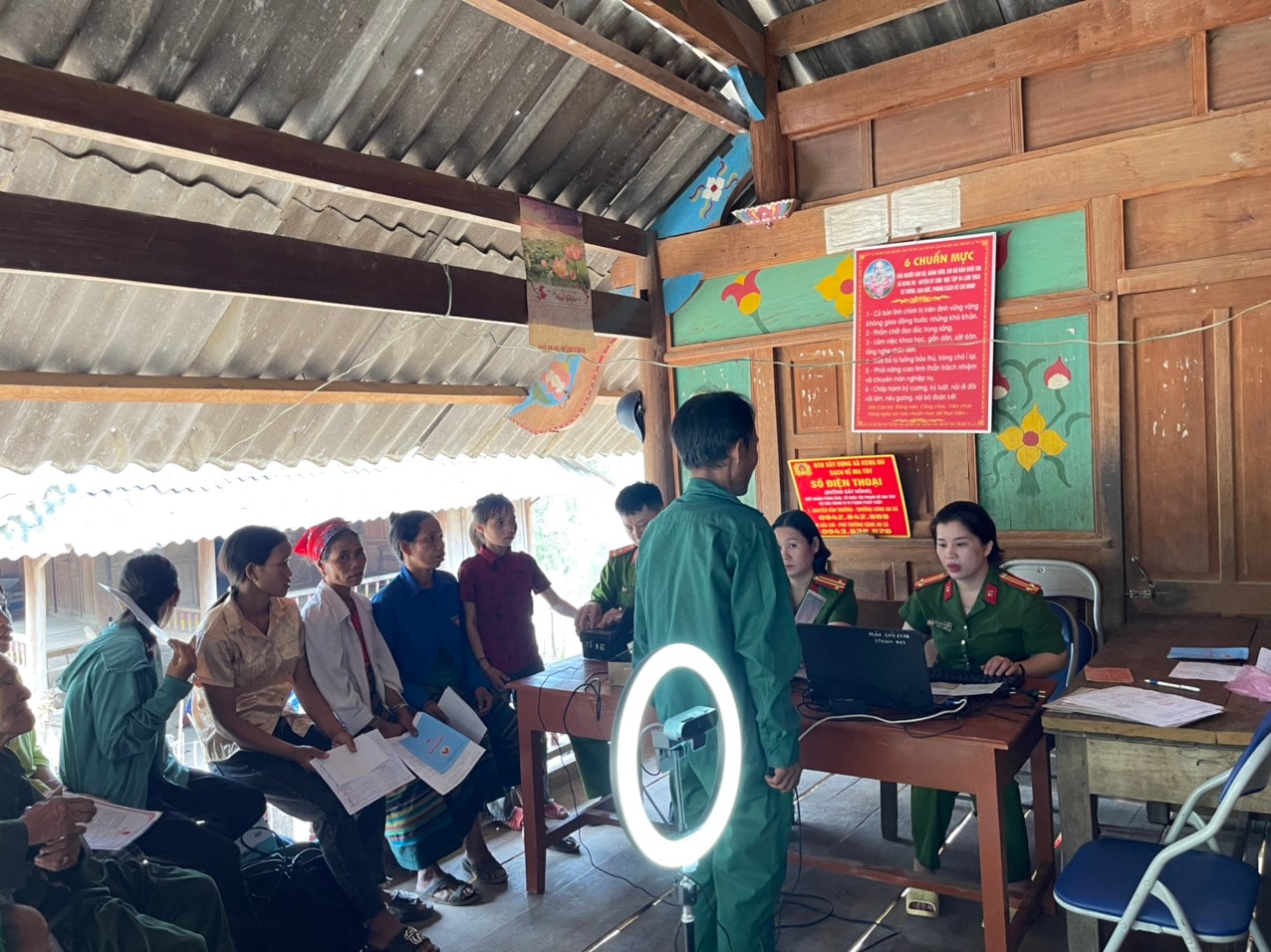 |
| During the process of collecting data for making CCCD, the working groups received very effective support from the District Police, directly from the Commune Police force. Thanks to a firm grasp of the area and skillful mass mobilization work, the Commune Police quickly gathered people at the data collection point, saving a lot of time and effort... Photo: Hong Ngoc |
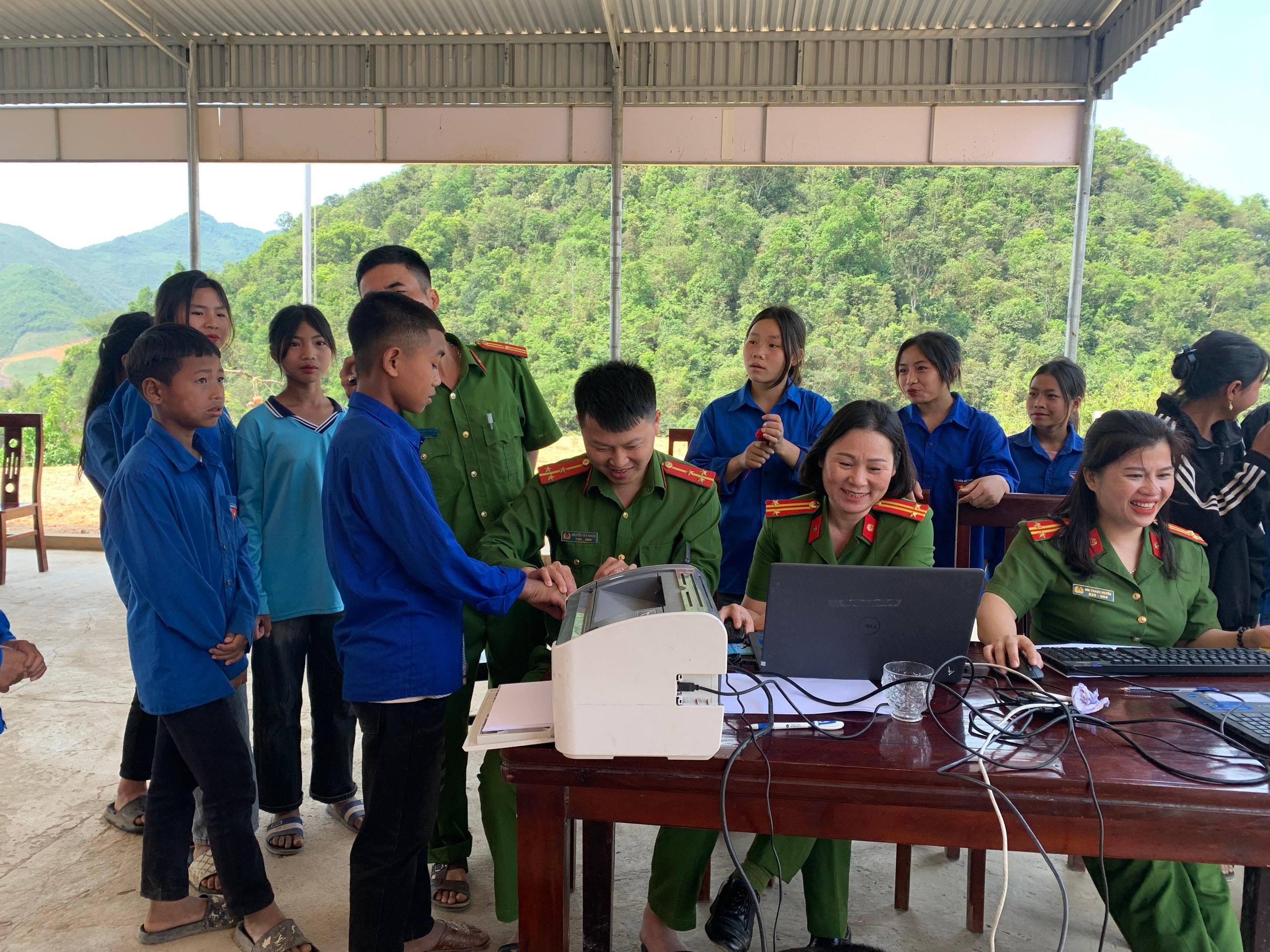 |
| Each working group of the Provincial Police was reinforced for about 10 days. After that, other groups replaced them and continued to cross mountains and forests to other villages. They only stopped when all the people of the right age were issued with ID cards. Photo: Hong Ngoc |



